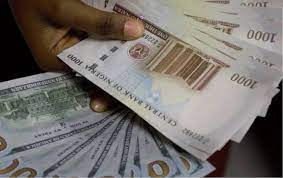By David Agba
Abuja
The Monetary Policy Committee (MPC) of Central Bank of Nigeria (CBN) has left all its basic rates unchanged.
These includes; Monetary Policy Rate (MPR): 14 percent; Cash Reserve Ratio (CRR) 22.5 per cent; Liquidity Ratio at 30.00 per cent; and Asymmetric corridor at +200 and -500 basis points around the MPR.
This, it decided in view of the challenges weighing down the domestic economy and the uncertainties in the global environment.
Reviewing the economy in the last two months, Governor of the Central Bank of Nigeria (CBN) Godwin Emefiele, who briefed the press on the outcome of the meeting, noted that total foreign exchange inflows through the bank increased by 69.77 per cent in April, 2017 compared with the previous month.
MPC observed that data and forecasts of key economic variables as well as assessment of government initiatives all point to prospects of recovery in 2017.
However, it urged a timely implementation of Economic Recovery and Growth Plan (EPRG), judicious execution of the approved 2017 Budget and sustenance of the new foreign exchange implementation regime supported by the restoration of security in different parts of the country, especially, in the Niger Delta region as these would help accelerate growth and restore confidence in the economy.
Total outflows, however, rose, but less significantly, at 29.35 per cent during the same period.
He then disclosed that more than $1.1 billion private capital has been injected into the interbank segment of the foreign exchange market.
“If about 70 percent is coming in from non-oil exporters and some foreign portfolio investors, it means that there is support for the segment of the market which is a willing buyer, willing seller market.”
The MPC however, identified the downside risks to this outlook to include the possibility of low oil prices due to renewed investments in shale oil exploration and production, continuing monetary policy normalization by the U.S. Fed which may result in strengthening of the U.S dollar, and consequent capital reversal from Nigeria and other emerging market economies.
Also, the MPC believes that the inflation outlook does not appear benign as the limit of the base effect driving the current moderation in prices may have been reached.
“Notwithstanding the improved outlook for the economy, the Committee weighed the implications of continuing global uncertainties arising from the dwindling commitment to global cooperation, the strengthening of the U.S. dollar, and the unsteady commodity prices.



